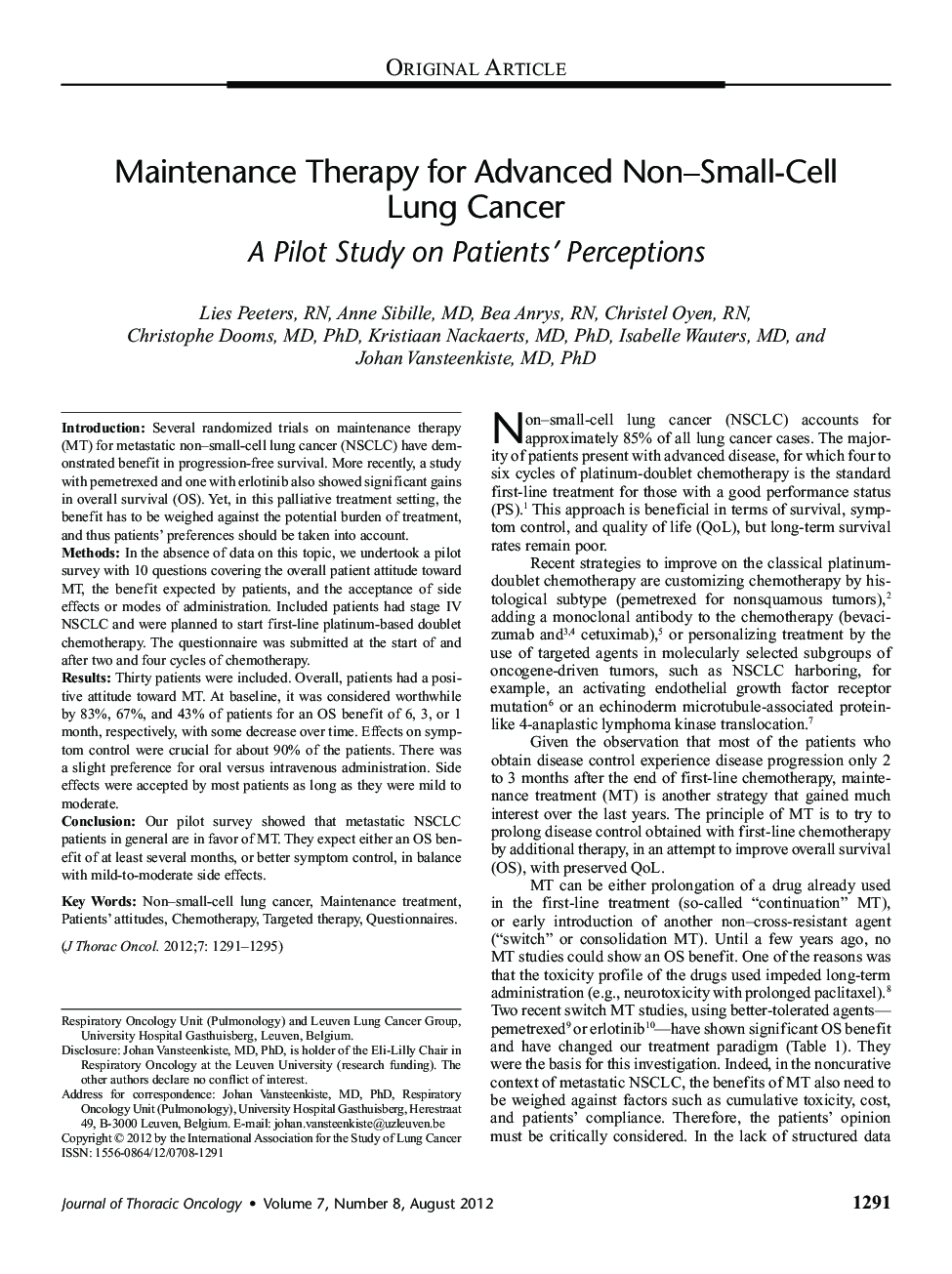| Article ID | Journal | Published Year | Pages | File Type |
|---|---|---|---|---|
| 3989785 | Journal of Thoracic Oncology | 2012 | 5 Pages |
Introduction:Several randomized trials on maintenance therapy (MT) for metastatic non–small-cell lung cancer (NSCLC) have demonstrated benefit in progression-free survival. More recently, a study with pemetrexed and one with erlotinib also showed significant gains in overall survival (OS). Yet, in this palliative treatment setting, the benefit has to be weighed against the potential burden of treatment, and thus patients’ preferences should be taken into account.Methods:In the absence of data on this topic, we undertook a pilot survey with 10 questions covering the overall patient attitude toward MT, the benefit expected by patients, and the acceptance of side effects or modes of administration. Included patients had stage IV NSCLC and were planned to start first-line platinum-based doublet chemotherapy. The questionnaire was submitted at the start of and after two and four cycles of chemotherapy.Results:Thirty patients were included. Overall, patients had a positive attitude toward MT. At baseline, it was considered worthwhile by 83%, 67%, and 43% of patients for an OS benefit of 6, 3, or 1 month, respectively, with some decrease over time. Effects on symptom control were crucial for about 90% of the patients. There was a slight preference for oral versus intravenous administration. Side effects were accepted by most patients as long as they were mild to moderate.Conclusion:Our pilot survey showed that metastatic NSCLC patients in general are in favor of MT. They expect either an OS benefit of at least several months, or better symptom control, in balance with mild-to-moderate side effects.
